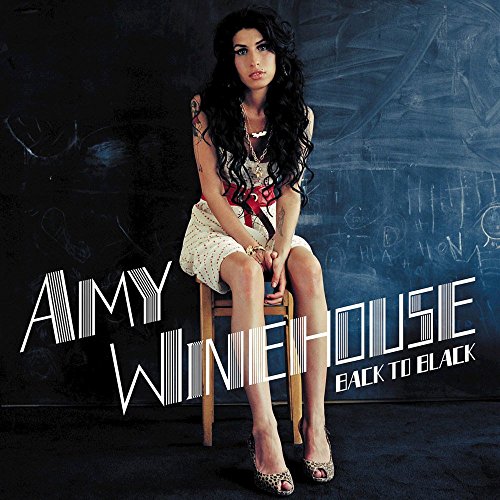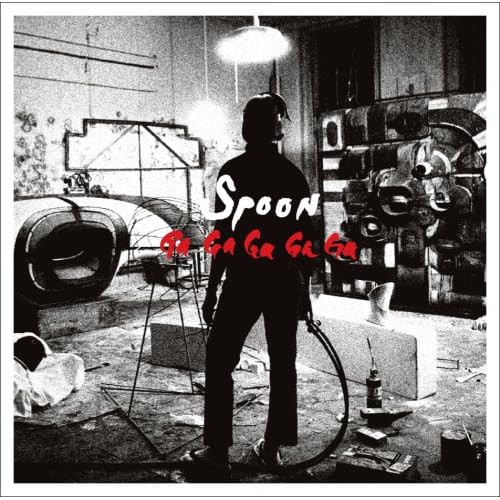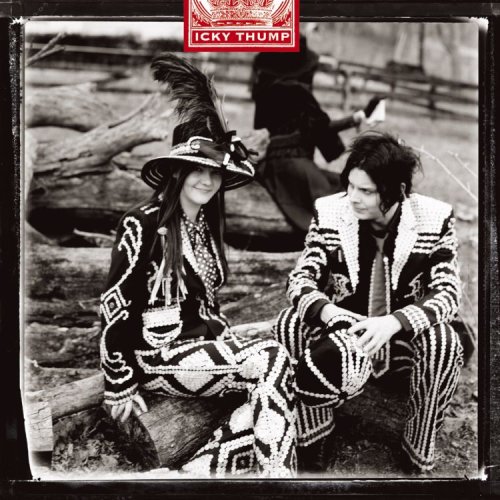 By the way, one of Mark Ronson's US fall tour dates have been announced. He will be performing live at the Mezzanine in San Francisco, CA on Thursday, September 20th. It seems a lot of other things are going on that day. Anyway, if you're 21 or older, see Ronson live before he explodes with his latest album. Here's an article on Ronson from today's The Sunday Times:
By the way, one of Mark Ronson's US fall tour dates have been announced. He will be performing live at the Mezzanine in San Francisco, CA on Thursday, September 20th. It seems a lot of other things are going on that day. Anyway, if you're 21 or older, see Ronson live before he explodes with his latest album. Here's an article on Ronson from today's The Sunday Times:Mark Ronson mixes in
An album of cover versions has taken the producer and DJ Mark Ronson into the charts. Will his single with Lily Allen send him into the stratosphere?
For someone who finds it hard to let go, Mark Ronson has chosen some pretty inappropriate friends. When he’s in London, the New York-based DJ and producer – whose second album, Version, shot up the charts earlier this year thanks, in part, to the big-name singers who feature on it – often hits the town with Lily Allen or Amy Winehouse. The Patty and Selma Bouvier of contemporary pop are scarcely shy and retiring types, so how on earth does Ronson cope?
A clue to his survival strategy is offered one evening in Milan, as Ronson and his friend and collaborator, the Australian singer Daniel Merriweather, sample the nightlife following a performance at a Dolce & Gabbana party. Ostensibly, Ronson keeps pace with everyone present, through the subsequent dinner and on, in the small hours, to a club. Sitting with an expression of Zen-like calm on his face, Ronson manages to avoid wincing as the club’s DJs make a hash of the task of whipping up the crowd. The man who span the records at the wedding of Tom Cruise and Katie Holmes is no slouch when it comes to building dancefloor momentum. This evening, though, he keeps his own counsel, surveying his companions’ increasing incapacity through amused eyes. The next morning, he’ll be up with the birds; everyone else oversleeps.
Control – and not losing it – is a big deal for Ronson. His critics say that an inability to cut loose is precisely what hampers the music he makes. “It’s hard for me to let go,” the 29-year-old concedes in his mid-Atlantic drawl. “I have this guilt thing, or I feel that I have to set an example. I do have the odd night where Amy will have to pick me up off somebody’s couch and go, ‘Mark, we’re leaving now’ ” – now there’s a scenario to boggle the mind – “but it doesn’t happen that often.”
Ronson rejects the notion that he is musically cautious, too. In part, this perception has arisen not so much because of the records he makes, but because of his upbringing as the child of celebrities, born with a silver mix tape in his mouth – and his subsequent rise to local fame as the New York velvet-rope DJ of choice for stars such as P.Diddy and Prince. The son of the Big Apple socialite Ann Dexter-Jones, and the stepson of Foreigner’s Mick Jones, Ronson grew up in a house along the street from the McCartneys, where David Bowie was a regular visitor; later, when his family moved to America, he hung out with Sean Lennon and Michael Jackson. Musically “bookish”, his act of rebellion was to throw himself into the hip-hop scene, where he earned his spurs as a DJ.
“That was the real thing,” he says. “Not rich white kids throwing parties with a hip-hop DJ, but places where rappers and drug-dealers went. That kind of crowd wouldn’t be able to pick out my stepdad from a lineup if there was a million-dollar bounty on him. Someone could have gone, ‘Mark’s dad is in Foreigner’, and they would have said, ‘Who the f*** are they?’ ” In 2000, he got what he thought was his lucky break when he co-produced an album by the American singer Nikka Costa.
“Everyone was walking up to me after they’d heard [the single] Like a Feather and going, ‘Man, this is going to be incredible, you’re going to be able to retire after this.’ I was DJing at a party for Jay-Z and threw the record on, and he motions me over. I thought he was going to say, ‘Don’t ever use my parties to promote your own records again.’ But what he said was, ‘Promise me you’re going to let me be the one who raps over the remix.’ It was insane. And then it actually came out, and it did nothing.”
He laughs as he says this, and, if anything, it’s this quality – a refusal to get too hot and bothered about life, its highs or its lows – that informs his music, rather than his upbringing or his address book. “I hear things,” he says, “like, ‘Oh yeah, well, if I had his money and connections, I could have made a record like [Version].’ But the album came out of not having money, and just getting my friends to play on it.”
Ronson’s debut, 2003’s sample-rich mash-up Here Comes the Fuzz, was his second crack at the big time. “I had this huge budget to get every rapper and his mother on it.” Again, the breakthrough failed to materialise. In the meantime, the money was rolling in from those DJ bookings, but Ronson was beginning to have doubts.
“The fashion crowd discovered me,” he says, with a suspicion of a sneer, “and it was suddenly ‘overnight sensation’ – the term ‘celebrity DJ’ was almost invented for me. It was annoying, and it wouldn’t wash off. I realised I would have to stop if I wanted to be taken seriously for my music. I’d get calls saying ‘Will you DJ the Martha Stewart Christmas party?’, and there’d be this voice in my head going, ‘What would [LCD Soundsystem’s] James Murphy do? Would he say yes? Probably not.’ ” Despite pouring all his money into his own label, Allido, Ronson kept the bank manager happy with a succession of production jobs, including songs for Christina Aguilera, Robbie Williams, Allen and Winehouse. He also, crucially, recorded a cover of Radiohead’s Just for last year’s tribute album, Exit Music – which sowed the seed of Version’s concept in his mind and gave him the confidence to refashion tracks by other sacred cows such as the Smiths and the Jam.
In addition, Ronson famously helped Winehouse to hatch her track Rehab, after hearing her describe her manager’s attempts to persuade her into a recovery programme and suggesting the anecdote would be perfect for a song. Allen was an unknown when he met her through her boyfriend, a fellow DJ. She sings on his new single, a cover of Kaiser Chiefs’ Oh My God, and is, along with Winehouse, the chief reason Version initially received the publicity it did. “It is a bit ironic,” he says, “that Amy and Lily turn round as these huge pop stars, and all of a sudden it looks like I have this super-premeditated superstar album.” Not that he sounds remotely vexed by this turn of events. How would he describe his music? “Oh, ‘Mark Ronson and his quirky brand of postBrithop funk dancefloor fillers,” he suggests with characteristic flippancy.
He’s cautious to a degree, watchful while everyone else is seeing double, with a gold disc for his wall but a reputation for fast-track privilege that he has still to shake off entirely. He has just remixed a Dylan song – “The first time he has ever allowed anyone to touch his master recordings,” he says proudly – and it’s unlikely he was asked because of his family tree. He may joke about the night he had a sleepover with Michael Jackson – “I haven’t seen him since; he doesn’t call, he doesn’t write” – but that’s because he can. So, which Mark Ronson are we getting here: the cover version, or the original? I tried to make him reveal the answer, but his body language said, no, no, no.
Oh My God, featuring Lily Allen, is released tomorrow on Allido/Columbia











No comments:
Post a Comment